This past week has been busy for me, and after a brief cool down it's hot and uncomfortable again, so I haven't been able to spend much time outside the last few days. That gets frustrating for me because I know there's stuff going on out there that I'm missing. Like butterflies. Some of them are only around for a short time each summer, and I really don't want to miss any of them!
Like this one I saw a few weeks back. I knew it was a bit different, not one of the most common I see in my garden:
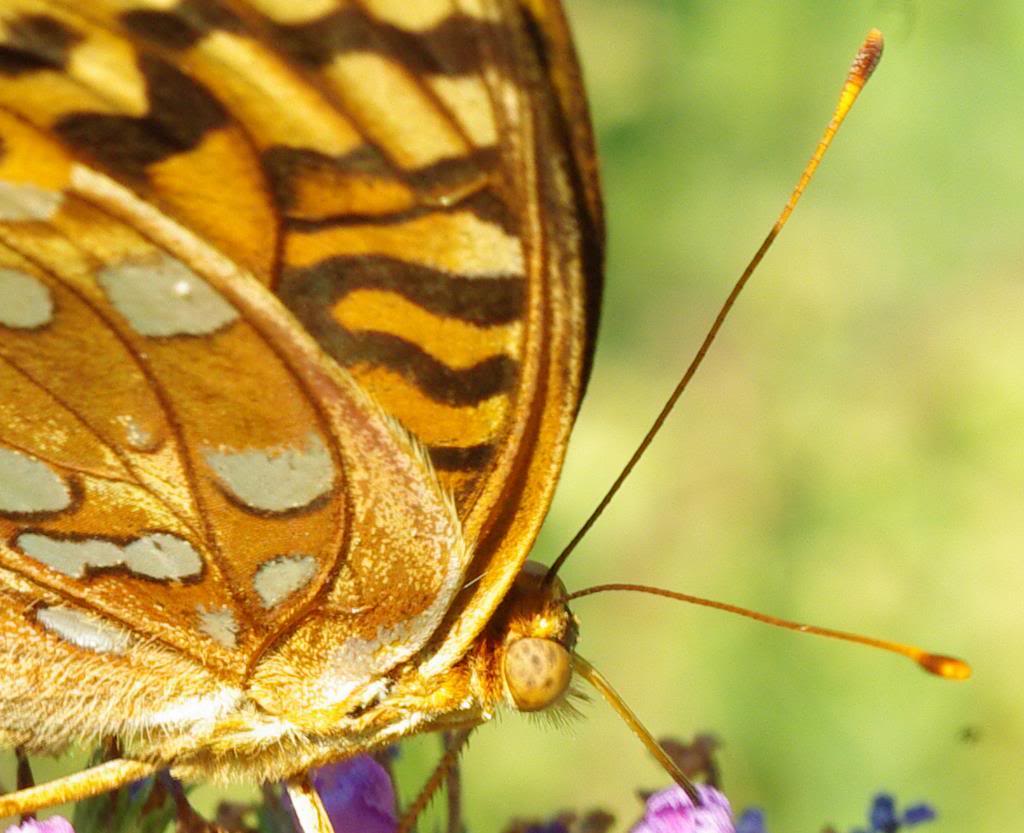 |
| Yeah, I have a spotted eyeball. What of it? |
I used to bring the butterfly field guide outside with me, trying to identify the insects "live", but soon saw how difficult that really was. So now my goal is to just get as many photos as possible -- identification can come later.
This one kept its wings closed the whole time it was feeding. I never got a shot of the topside of the wings -- and only got a very brief glimpse as it flew from bloom to bloom. Not enough to be able to pick out specific topside markings though.
That could have made it a little more difficult to identify, as the top side of the wings are often drastically different than the bottoms, and often hold the markings that identify similar-looking species.
Luckily in this case the bottom of the wings was all I needed for an ID. This is a Great Spangled Fritillary.
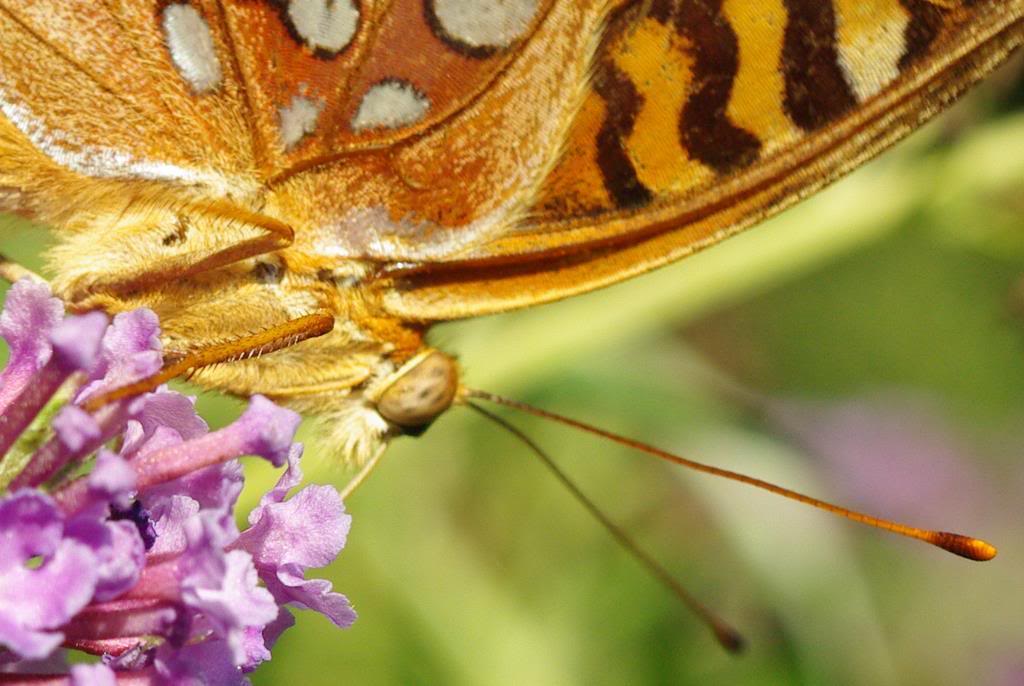 |
| Those leg spikes are pretty severe. Do most butterflies have this feature? |
The Fritillaries are also known as "silverspots" because many of the species have metallic silver spots on their hindwings -- this one sure did.
Even in the glaring late-afternoon sunshine the silver markings were obvious. I also realized that I've seen this species in my garden before (in previous years), but it's still not as common as the swallowtails, and I was glad to see it again.
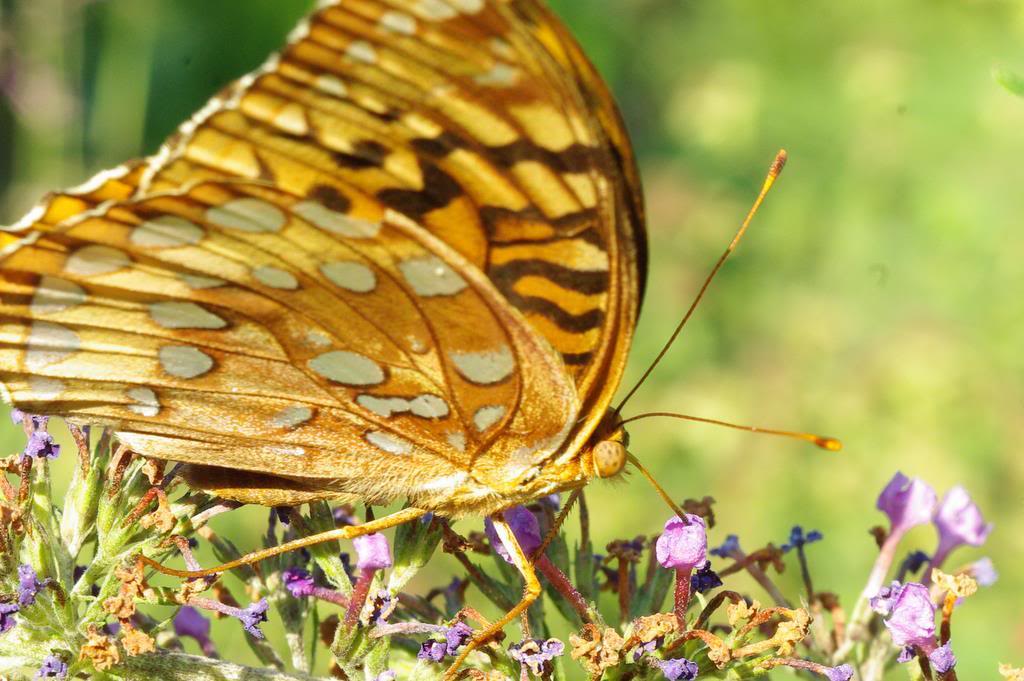 |
| Slim pickings on this butterfly bush it seems. |
So that Fritillary kept its wings closed as it moved all over the butterfly bush, not giving me easy shots. This next butterfly had the opposite problem:
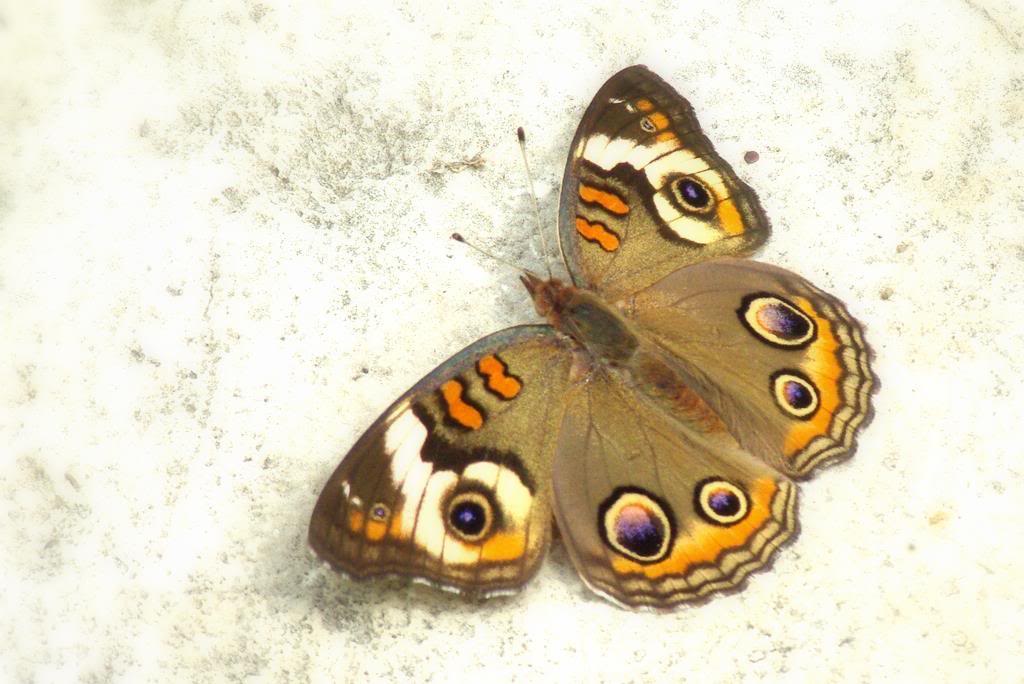 |
| If you stare at this long enough, you will be hypnotized. |
It kept its wings open the whole time, never moving. I took four identical photos and waited for it to do something different. It didn't. I got tired of waiting and went inside. I decided you didn't need to see all four.
Luckily this species is super easy to identify from the topside markings: it's a Common Buckeye. (The underwing is actually quite drab and featureless, so I lucked out on this one.)
I don't really have a good way to end this post, so here's an interesting fact about the Fritillaries: their larval food source is violets. Since that's the case, I wonder why I don't see great swarms of these every year? I certainly have enough violets.
(In case you're wondering about the title of this post, I usually have some idea of what I'm going to write about before I start -- at least a general theme. Today all I had was some butterfly photos. So I just started writing to see what I could make of it. No prep -- I just "winged it". I was hoping for more of a tie-in with butterfly wings, but that didn't happen. Hope this post wasn't too rambling.)
.

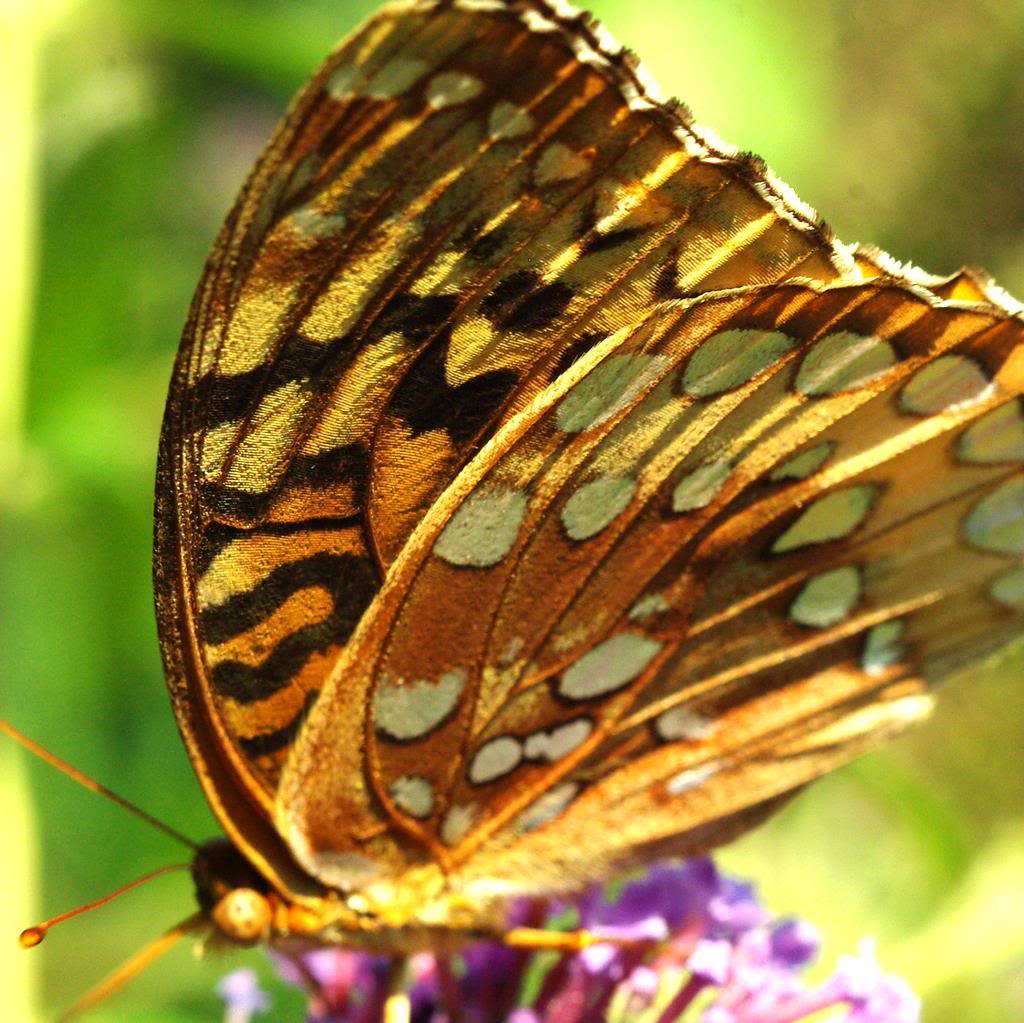
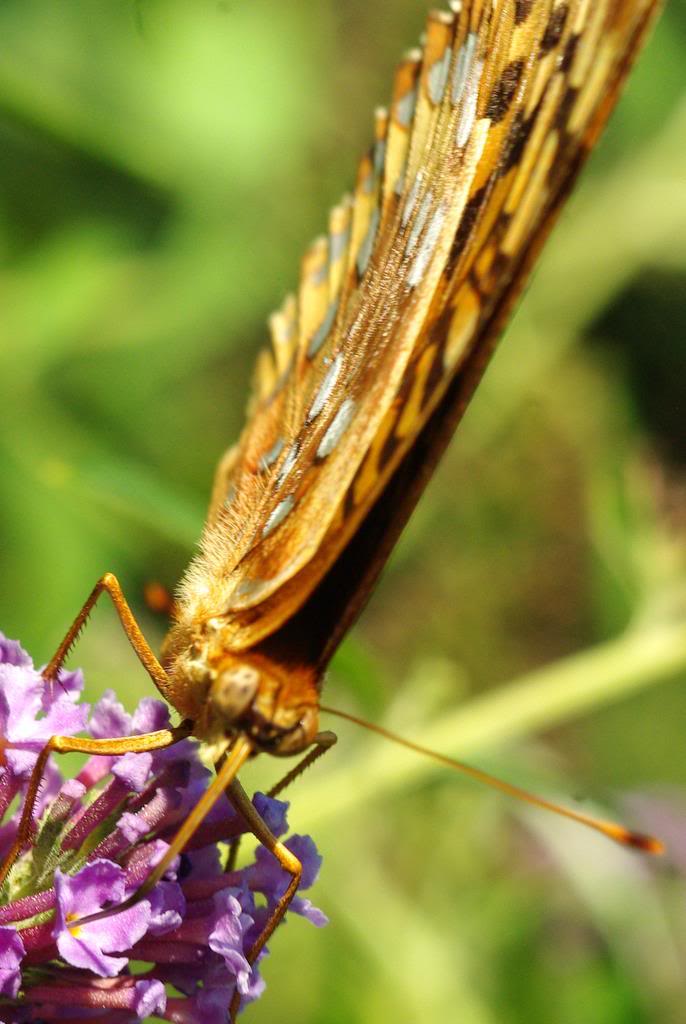
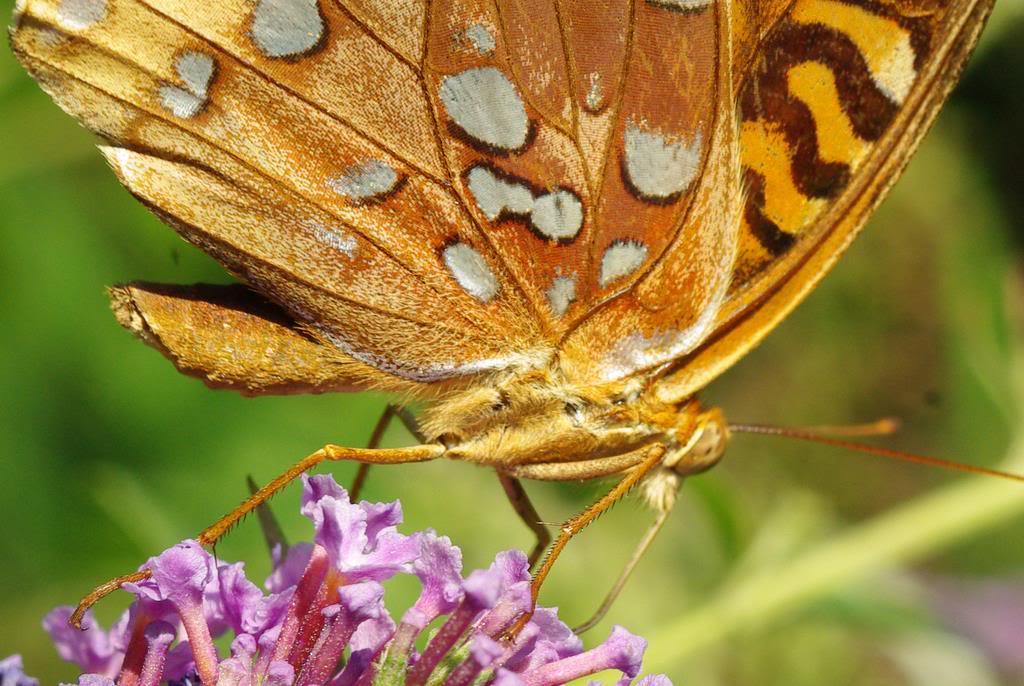

No comments:
Post a Comment